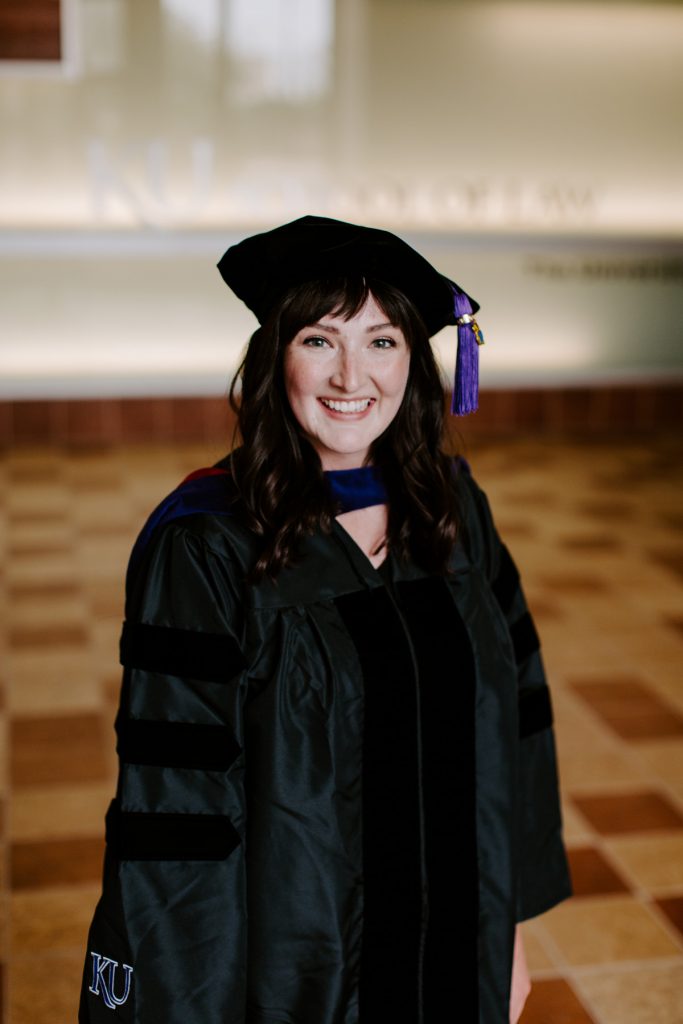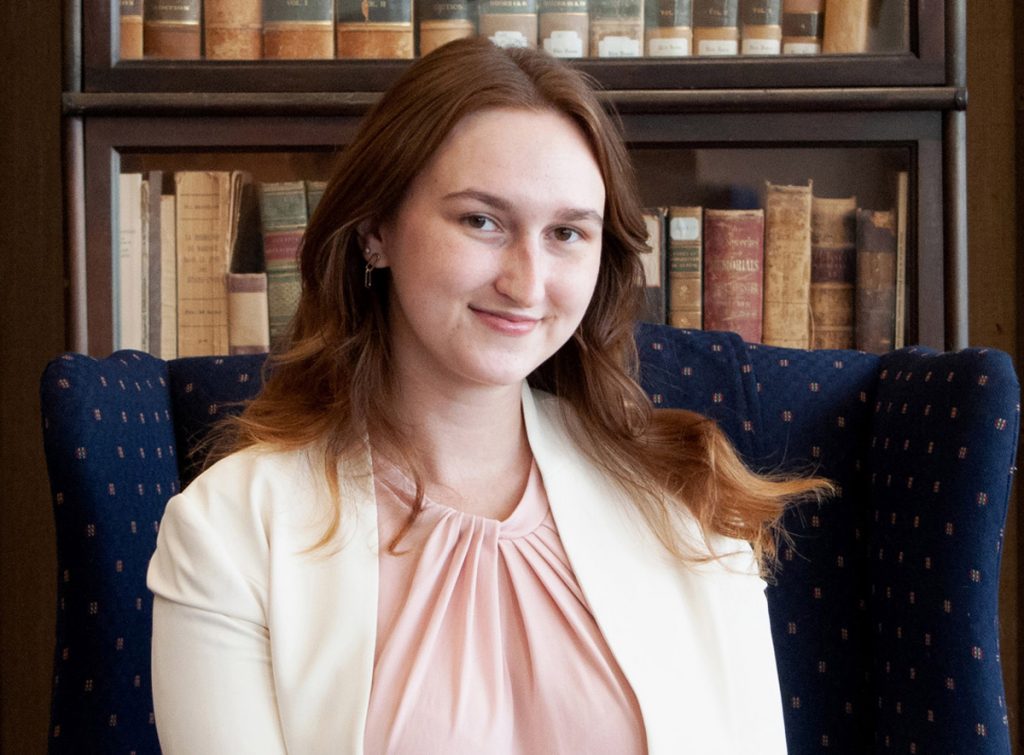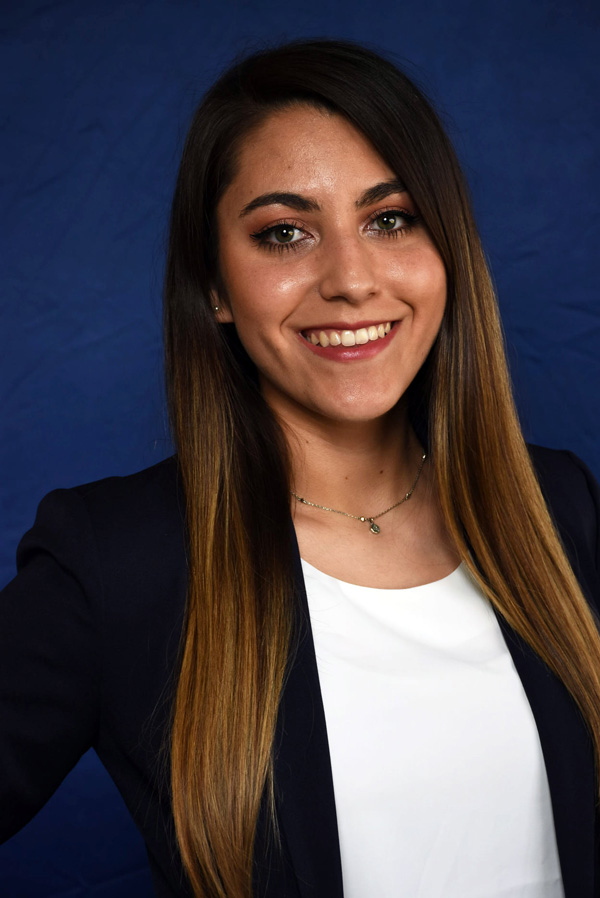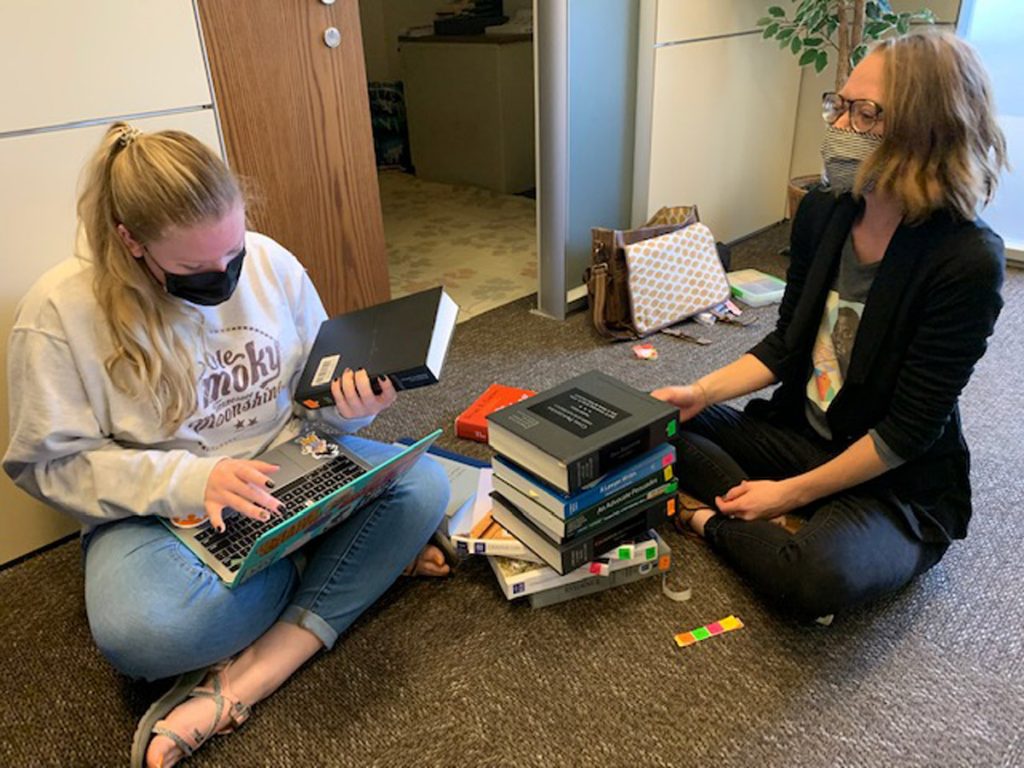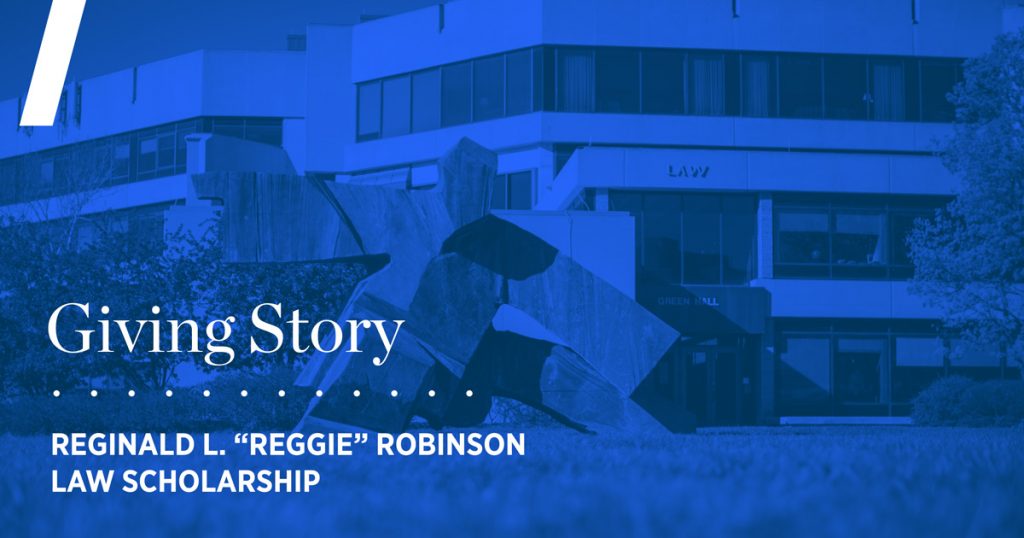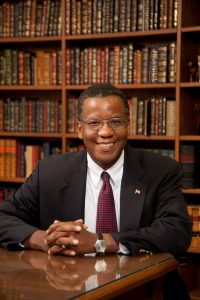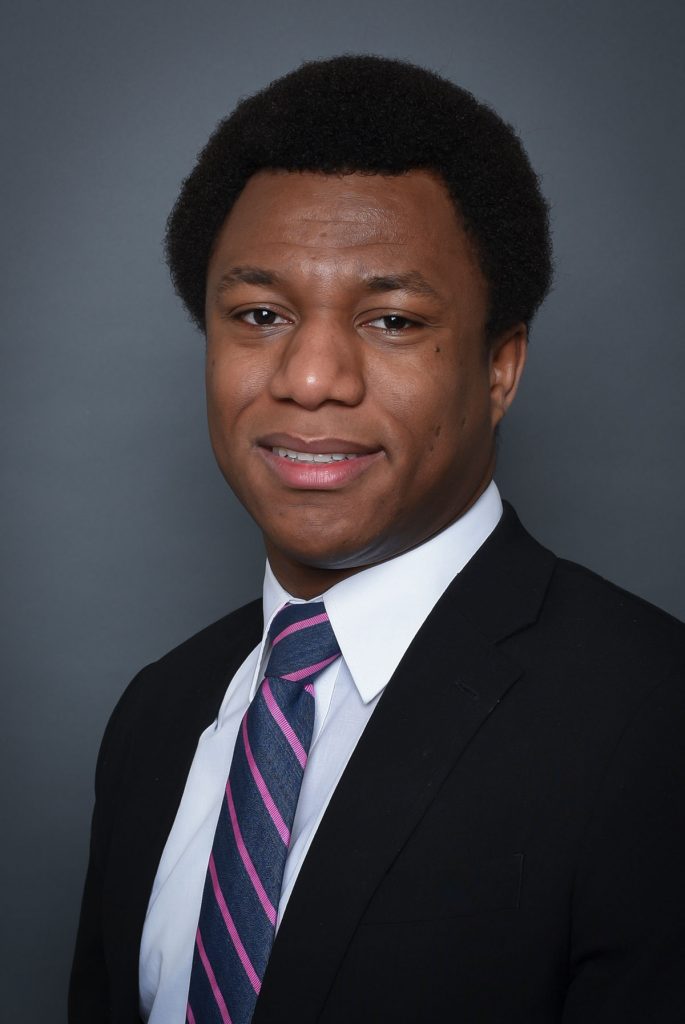Reading, thinking, and taking time to appreciate the weight of judicial decision
Recent KU Law graduate Emma Easom recognizes the impact those working for the judiciary possess and does not take the responsibility lightly. Easom, L’21, is clerking for Chief Justice Michael E. Vigil of the New Mexico Supreme Court.
As a clerk, Easom spends a great deal of her time reading briefs and reviewing records—anything to deepen her understanding of a case. Before oral arguments, Chief Justice Vigil, Easom, and her co-clerk discuss the cases and the legal questions before the Court. After oral arguments, the chambers begin the opinion writing process.
“I feel really fortunate to see the crafting of a judicial opinion from the submission of the briefs to the publication of the opinion,” Easom said.
The justices, paralegals, staff attorneys, and clerks devote a lot of time to each opinion. Easom said, “It’s a really collaborative and supportive environment.”
KU Law prepared Easom well for her work. Her time with the KU Law Review and in Advanced Legal Research, taught by Professor Chris Steadham, prepared her for reviewing opinions, researching case law, and checking legal citations. Easom said, “I think there’s a theme that stayed with me through law school: take your time and always pay attention to detail. It will always be worth it.”
During her 1L summer field placement with the New Mexico Law Offices of the Public Defenders, Easom represented clients in metropolitan court. Now, Easom is grateful for the opportunity to see the advocacy process from the other side of the bench. Along with a certificate in advocacy skills, Easom received the James P. Mize Trial Advocacy Award at graduation, given to a student who shows outstanding promise as a trial advocate.
Easom’s advocacy skills were honed by KU’s Mock Trial Program, coached by Professor Alice Craig and Professor Meredith Schnug, and are transferrable to her work as a clerk. Easom said considering both sides of the case is vital to the appellate process.
“My work lends itself to full immersion in the legal issues and consideration of the consequences of the Court’s decision.”
While writing, Easom reminds herself of the importance of going back to the basics.
“Every single word you use matters,” Easom said. “It’s really important to remember that these cases directly affect someone’s life. The language in the opinions should be accessible to everyone whether it’s a student, a reporter, or a law professor.”
Easom developed an appreciation for the importance of thinking beyond oneself while working with the Paul E. Wilson Project for Innocence & Post-Conviction Remedies at KU Law. To her, the Project was an important symbol of hope for clients with limited access to the legal system. Easom recommends the Project not only for the real-world experience but also for the chance to work with outstanding professors and a tight-knit group of students.
“Professor Cateforis, Professor Craig, and Professor Phillips were there to support me in and out of the classroom. They were genuinely interested in my growth as a woman in law and the start of my career,” Easom said. “I really loved the Project.”
Law school was not the first choice for Easom. As the daughter of two pharmacists, Easom often heard medical jargon amidst her parents’ conversations at dinner. Easom knew she wanted to solve problems like her parents and positively shape her community, but didn’t know how to incorporate her love of philosophy, reading and writing.
Her high school guidance counselor suggested Easom consider law school.
“When he suggested it, it was as if someone had opened a new world to me and gave me permission to explore my desire to effect change,” Easom said.
KU Law’s LEAD Program reaffirmed Easom’s desire to enter the legal field. With guidance from the program’s mentors—including Professor Lumen Mulligan—the KU Honors Program, and the added buzz of the Jayhawk spirit, the then high school senior was convinced KU was the right choice. She earned two undergraduate degrees, one in Spanish and another in philosophy, from KU in three years.
“You can feel the spirit of the school,” Easom said. “There’s a lot of excitement about being a Jayhawk. A lot of pride. It’s always great to hear a ‘Rock Chalk,’ especially here in New Mexico.”
Easom encourages current and future Jayhawk lawyers to be curious and get involved. Easom was the president of Women in Law, vice president of the Public Interest Law Society, a judge for KU Law Traffic Court, and an extern with the Kansas Court of Appeals.
“Take classes that seem like something you may be interested in even if you think you’ll never practice in that field,” Easom said, “and seek out conversations with your professors. They are eager to talk with students, give you opportunities, and connect you with your passions. Your learning doesn’t stop at the end of law school—it’s just the beginning.”
–By Sydney Halas
This post is the fourth in a series highlighting recent KU Law graduates. Check out other stories about Diana Jarek, Sowensky Lumene and Claudia Chavarria.
